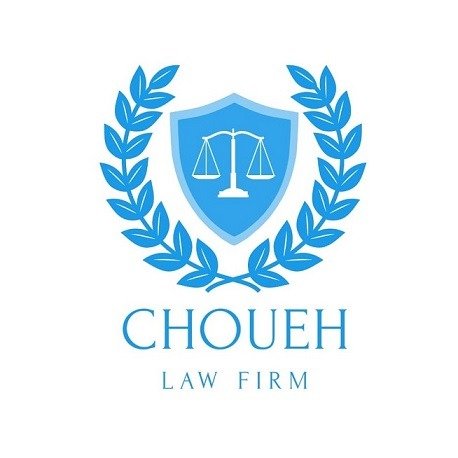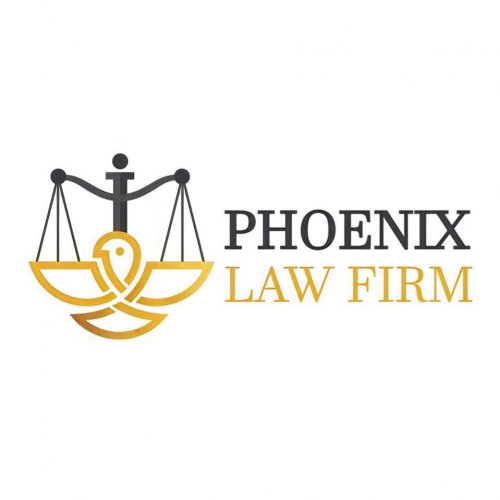Best Acquisition / Leveraged Finance Lawyers in Beirut
Share your needs with us, get contacted by law firms.
Free. Takes 2 min.
List of the best lawyers in Beirut, Lebanon
About Acquisition / Leveraged Finance Law in Beirut, Lebanon
Acquisition and leveraged finance refers to legal and financial arrangements made to support mergers, acquisitions, or buyouts, often by using a significant amount of borrowed funds. In Beirut, Lebanon, such transactions are shaped by local Lebanese law, banking regulations, and international financing norms. The sector involves various participants such as banks, private equity funds, corporations, and legal advisors who structure these deals according to local market conditions. Understanding the legal framework for acquisition and leveraged finance in Lebanon is crucial for successful transactions and for managing associated risks.
Why You May Need a Lawyer
Engaging a lawyer is essential for navigating the complicated terrain of acquisition and leveraged finance in Beirut. You may require legal help in situations such as:
- Negotiating and structuring loans or credit facilities for an acquisition
- Conducting due diligence on potential target companies or assets
- Ensuring compliance with local banking and finance regulations
- Drafting and reviewing documentation such as loan agreements, security agreements, or guarantees
- Advising on cross-border transactions or foreign investment rules
- Managing lender and borrower rights and obligations
- Mitigating risks associated with financial covenants, insolvency, or defaults
- Resolving disputes related to transaction breaches or non-performance
Professional legal advice helps protect your interests and ensures that deals do not inadvertently violate local laws or regulations.
Local Laws Overview
Lebanon’s legal system is influenced by both civil law and international principles. When it comes to acquisition and leveraged finance, some of the most important legal considerations include:
- Banking Regulations: The Banque du Liban (Central Bank of Lebanon) sets rules for lending and borrowing, including capital adequacy and prudential requirements.
- Corporate Law: The Lebanese Code of Commerce governs company structures, merger procedures, shareholder rights, and related aspects.
- Securities and Collateral: The laws surrounding pledges, mortgages, guarantees, and other forms of security interests are key to safeguarding lenders’ rights.
- Foreign Investment: Transactions involving foreign parties are subject to restrictions under the Investment Law and may require government approval or compliance with anti-money laundering regulations.
- Contractual Freedom: Parties in Lebanon have significant freedom to negotiate contractual terms as long as they do not conflict with mandatory legal provisions.
- Insolvency and Restructuring: Lebanese insolvency law and bankruptcy proceedings impact the enforcement of lenders’ rights in the event of default.
Each deal must be carefully analyzed against these legal backdrops to avoid pitfalls and ensure enforceability.
Frequently Asked Questions
What is acquisition finance?
Acquisition finance refers to funding provided to enable the purchase of a business or asset. This includes loans, credit facilities, or debt instruments used to pay for all or part of the acquisition price.
What does leveraged finance mean?
Leveraged finance usually involves the use of borrowed funds, often with the acquired company’s assets or cash flows serving as collateral. The aim is to maximize return on investment while managing associated debt risks.
Are there restrictions on foreign investment in Lebanon acquisitions?
Yes. Lebanon has specific laws governing the percentage of foreign ownership in certain sectors. Some require approval from government authorities, especially in banking, real estate, and telecommunications.
How are loans typically secured in Lebanon?
Loans may be secured by way of mortgages, pledges over shares, assets, bank accounts, or personal guarantees. These forms of collateral must comply with Lebanese law to be enforceable.
What legal documents are usually needed in an acquisition finance deal?
Common documents include loan agreements, security agreements, corporate resolutions, due diligence reports, intercreditor agreements, and shareholder consents.
Is due diligence mandatory?
While not mandatory by law, due diligence is a vital risk management tool. Lenders and buyers use it to verify target assets, check for hidden liabilities, and ensure compliance with applicable laws and regulations.
What legal recourse exists if a borrower defaults?
Lenders may exercise contractual remedies, enforce their security interests through Lebanese courts, initiate insolvency proceedings, or pursue other rights as set forth in the relevant agreements.
Can acquisition financing be arranged internationally?
Yes. Cross-border acquisition finance is possible, but deals involving foreign lenders or investors must comply with Lebanese banking, foreign exchange controls, and anti-money laundering laws.
Are there taxes or fees on acquisition finance transactions?
Stamp duties and registration fees may apply to certain documents, and there may be taxes on interest, capital gains, or foreign remittances, depending on the transaction structure.
How long does it take to complete an acquisition finance transaction in Lebanon?
Timelines vary based on deal complexity, regulatory approvals required, and due diligence. Simple deals might close within weeks, while larger or cross-border transactions could take several months.
Additional Resources
Those seeking further information and support may consider the following resources in Beirut, Lebanon:
- The Lebanese Ministry of Justice - for guidance on commercial and company law
- Banque du Liban (Central Bank of Lebanon) - for banking regulations and financial sector guidelines
- General Directorate of Legal Affairs - for advice on regulatory compliance
- Beirut Bar Association - for finding qualified commercial and finance lawyers
- Investment Development Authority of Lebanon (IDAL) - for foreign investment laws and incentives
- Private sector organizations such as the Association of Banks in Lebanon - for market practices and standards
Next Steps
If you need legal assistance in acquisition or leveraged finance in Beirut, consider the following steps:
- Gather all available information about your planned transaction including the parties, financing needs, and goals
- Seek an initial consultation with a lawyer experienced in acquisition and finance law in Lebanon
- Prepare a list of questions and concerns to discuss during your legal consultation
- Request a clear outline of the legal process, timelines, and fees involved
- Ensure you fully understand your rights and obligations before signing any agreements
- Maintain ongoing communication with your legal advisor throughout the transaction
Taking these steps will help you protect your interests and achieve successful results in any acquisition or leveraged finance transaction in Beirut, Lebanon.
Lawzana helps you find the best lawyers and law firms in Beirut through a curated and pre-screened list of qualified legal professionals. Our platform offers rankings and detailed profiles of attorneys and law firms, allowing you to compare based on practice areas, including Acquisition / Leveraged Finance, experience, and client feedback.
Each profile includes a description of the firm's areas of practice, client reviews, team members and partners, year of establishment, spoken languages, office locations, contact information, social media presence, and any published articles or resources. Most firms on our platform speak English and are experienced in both local and international legal matters.
Get a quote from top-rated law firms in Beirut, Lebanon — quickly, securely, and without unnecessary hassle.
Disclaimer:
The information provided on this page is for general informational purposes only and does not constitute legal advice. While we strive to ensure the accuracy and relevance of the content, legal information may change over time, and interpretations of the law can vary. You should always consult with a qualified legal professional for advice specific to your situation.
We disclaim all liability for actions taken or not taken based on the content of this page. If you believe any information is incorrect or outdated, please contact us, and we will review and update it where appropriate.










